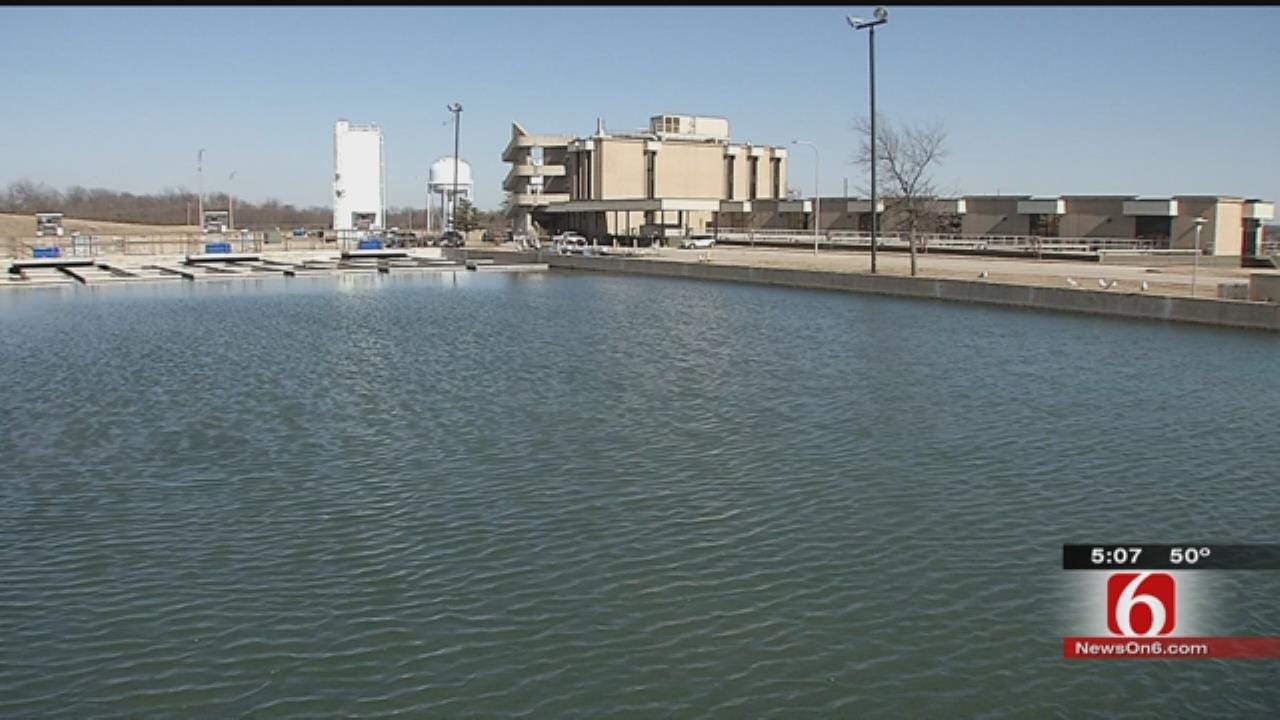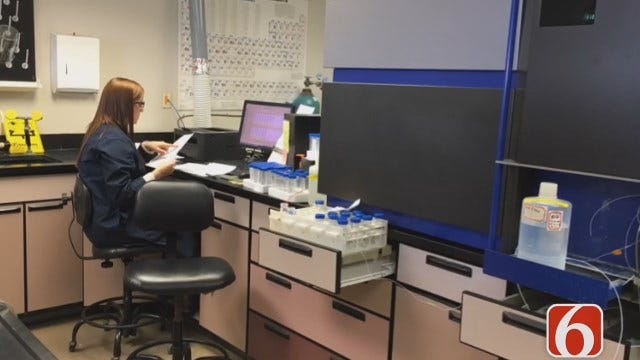Testing City Of Tulsa's Drinking Water For Lead
<p>Tulsa's water treatment plants routinely test for lead by taking samples from taps all over the city; and according to them, Tulsa's water is safe from lead.</p>Tuesday, January 26th 2016, 3:10 pm
Michigan's attorney general is launching an investigation into the Flint water crisis.
The A.G. said he wants to know if any environmental laws were broken or if official misconduct created the lead contamination problem.
Flint switched from Detroit's water system in 2014 to save money but the water wasn't properly treated for corrosion and lead from old pipes leached into the water.
The head of Ohio's EPA wants a criminal investigation over a similar problem. They said the operators of a water treatment plant failed to tell people tests last summer showed their water was tainted.
State leaders will begin testing children for lead contamination.
Tulsa's water treatment plants routinely test for lead by taking samples from taps all over the city; and according to them, Tulsa's water is safe from lead.
At the A.B. Jewell Water treatment plant, raw water from Lake Oologah flows into the system for processing.
This time of year, at this plant, 60 million gallons of lake water are made into drinkable water every day.
According to Jo Brown, the quality assurance manager for the city, there's no problem with lead - the level is so low it's usually undetectable.
"And so our water is not as corrosive, therefore, it's not pulling out the lead from the joints and the solder that they use for the water supply in older homes," Brown said.
The city has testing labs at each treatment plant that constantly look for problems, but the testing for lead and other metals is done by the chemists at A.B. Jewell.
Samples come from all over the city - 100 or so bottles each cycle.
They're pulled from faucets as far away from treatment as possible and checked for common pollution, disinfection, lead and other types of contamination.
Brown said, "That is why we go sample in the home, to make sure we're providing high-quality water and it's not leaching out the lead or any type of contaminant into their water."
Tulsa has two plants like this, pulling from two main water sources, both which have water that naturally doesn't corrode pipes.
But it's treated to ensure that, even far down the line, it won't create corrosion in homes that might have lead in the pipes.
While the water is free of lead, it's still in many houses because of lead paint - and it's in the ground around old manufacturing sites.
You can find more information here.
More Like This
January 26th, 2016
September 29th, 2024
September 17th, 2024
Top Headlines
December 11th, 2024
December 11th, 2024
December 11th, 2024













